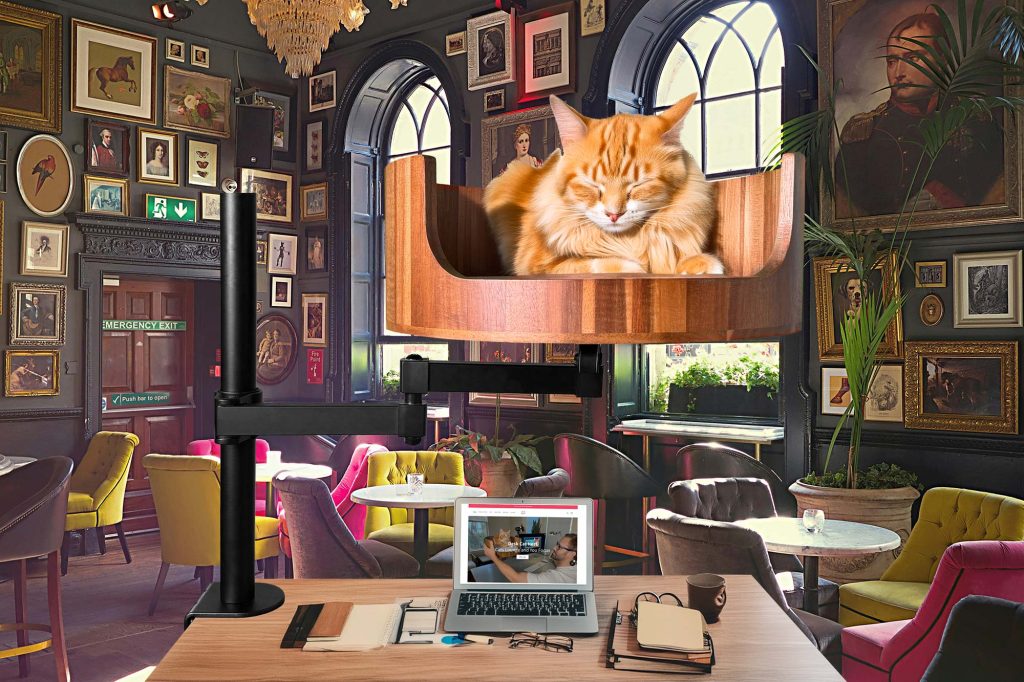If you’ve noticed your feline friend sniffling and sneezing more than usual, you may be wondering what could be causing their runny nose. In this article, we will explore the various reasons why your cat may be experiencing this symptom and discuss some potential remedies to help alleviate their discomfort.
From viral infections like feline herpesvirus to allergies and even foreign objects stuck in their nasal passages, there are a number of potential causes for a cat’s runny nose. Understanding the underlying issue is crucial in finding the most effective treatment for your furry companion. We will also delve into some natural remedies you can try at home, as well as when it may be necessary to seek veterinary care for your cat’s runny nose. By the end of this article, you will have a better understanding of what may be causing your cat’s runny nose and how to best care for them during this time of discomfort.
1. A runny nose in cats can be caused by a variety of factors, including infections, allergies, or foreign objects.
2. It is important to monitor the cat’s symptoms and behavior, and seek veterinary advice if the runny nose persists or is accompanied by other concerning signs.
3. Remedies for a cat with a runny nose may include antibiotics, antihistamines, or supportive care such as humidifiers or steam inhalation.
4. Regular grooming and keeping the cat’s environment clean can help prevent respiratory issues that may lead to a runny nose.
5. Overall, early detection and proper treatment are essential in addressing a cat’s runny nose and ensuring its well-being.
Causes of Runny Nose in Cats
There are several reasons why your cat may have a runny nose. Some common causes include viral or bacterial infections, allergies, foreign objects stuck in the nasal passage, nasal tumors, or dental issues causing sinus drainage. It is important to closely observe your cat’s other symptoms such as sneezing, coughing, wheezing, or lethargy to help determine the underlying cause of their runny nose.
Diagnosing Runny Nose in Cats
If your cat has a persistent runny nose, it is important to schedule a visit to the veterinarian for a proper diagnosis. The vet may perform a physical exam, take a nasal swab for testing, conduct blood work, or recommend imaging tests such as x-rays or CT scans to identify the cause of the runny nose. Based on the results, the vet will recommend the appropriate treatment plan.
Treating Runny Nose in Cats
The treatment for a cat’s runny nose will depend on the underlying cause. For bacterial infections, antibiotics may be prescribed. Antihistamines or corticosteroids may be used to relieve symptoms of allergies. In cases of nasal tumors, surgery or radiation therapy may be necessary. Providing supportive care such as humidifiers, steam therapy, or nasal saline drops can help alleviate nasal congestion and discomfort in cats with runny noses.
Preventing Runny Nose in Cats
To prevent your cat from developing a runny nose, make sure they receive regular vaccinations to protect against viral infections. Keep their living environment clean and free of potential allergens. Monitor their dental health to prevent sinus infections. If your cat goes outdoors, be cautious of potential foreign objects that could cause nasal irritation. By taking preventative measures, you can help keep your cat healthy and free from a runny nose.
Frequently Asked Questions
1. Will the Desk Cat Nest help with my cat’s runny nose?
While the Desk Cat Nest is designed to provide a cozy and comfortable space for your cat to relax and sleep, it is not specifically designed to treat medical conditions like a runny nose. We recommend consulting with your veterinarian for proper diagnosis and treatment.
2. Can the Desk Cat Nest be easily cleaned if my cat has a runny nose?
Yes, the Desk Cat Nest is made with removable and machine washable materials for easy cleaning. In case of a runny nose or other accidents, simply remove the cover and wash it according to the care instructions provided.
3. Is the Desk Cat Nest suitable for cats with respiratory issues?
The Desk Cat Nest is made with breathable materials to promote airflow and comfort for your cat. However, if your cat has serious respiratory issues, it is best to consult with your veterinarian to determine if the Desk Cat Nest is a suitable option.
4. Can the Desk Cat Nest help prevent my cat’s runny nose in the future?
The Desk Cat Nest provides a cozy and stress-free environment for your cat, which can help support overall health and well-being. While it may not prevent a runny nose specifically, a comfortable and relaxed cat is more likely to have a stronger immune system to ward off illnesses.
In conclusion, the Desk Cat Bed is the perfect solution for your cat’s runny nose. With its elevated design, it helps to keep your cat’s head elevated, promoting better breathing and reducing nasal congestion. The soft, plush materials provide a comfortable and cozy place for your cat to rest and recover. Additionally, the Desk Cat Bed is easy to clean and maintain, making it a practical and valuable choice for any pet owner. Invest in the Desk Cat Bed today to ensure your furry friend gets the rest and comfort they need to heal from their runny nose.


